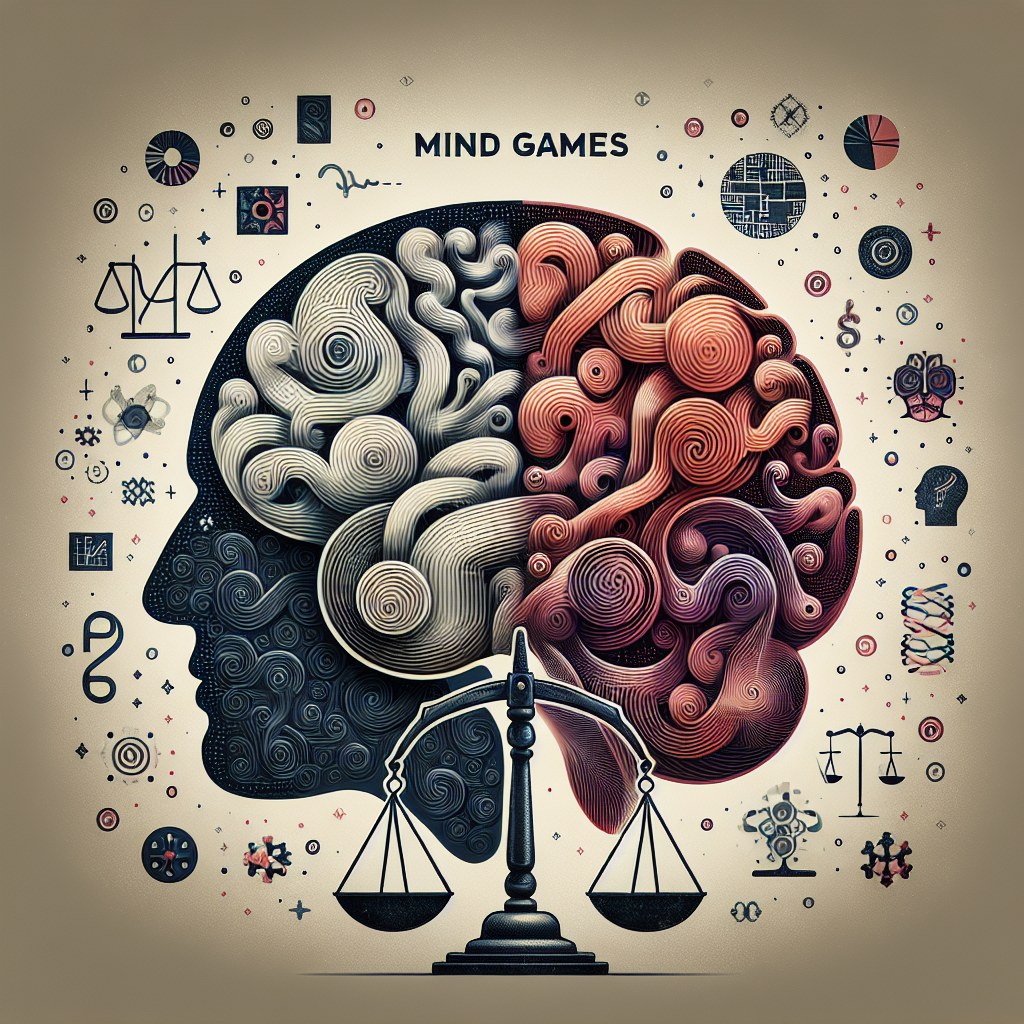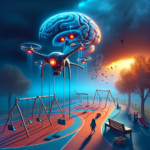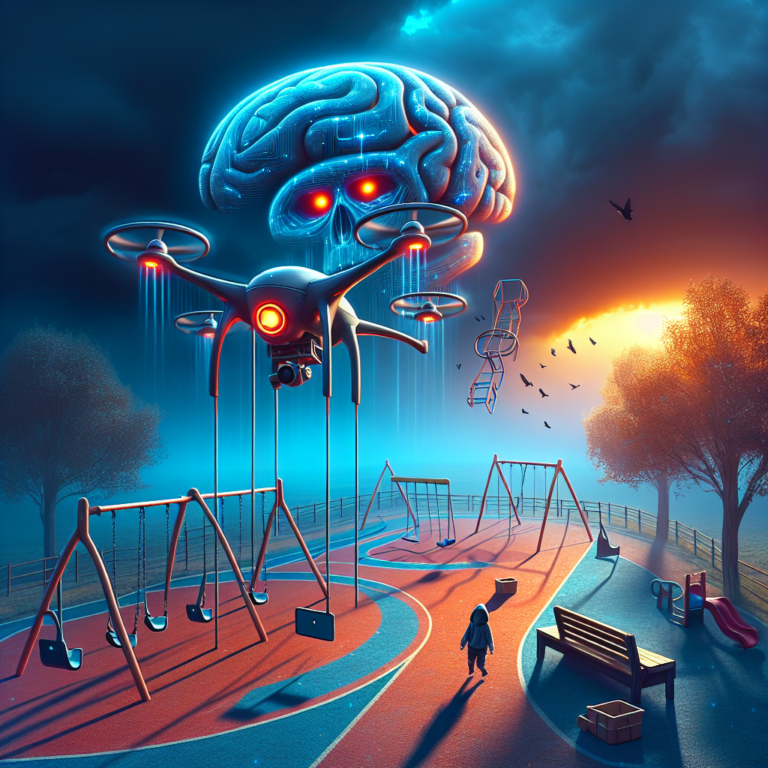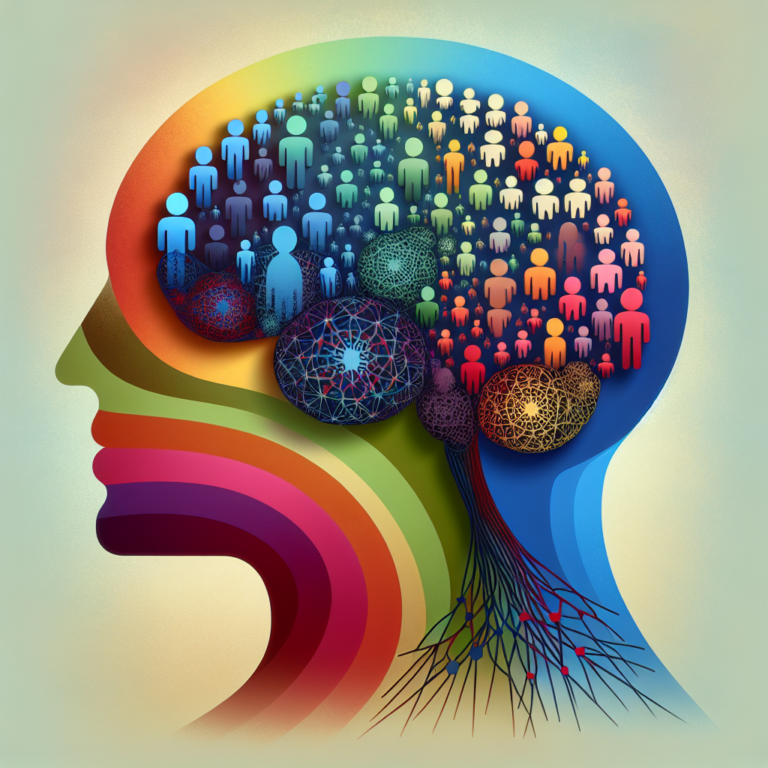
Introduction
Have you ever wondered why two people can witness the same event but come away with entirely different interpretations? Or why seemingly rational individuals make choices that defy logic? These intriguing discrepancies often stem from cognitive biases—mental shortcuts that our brains take to process information quickly. In this article, titled Mind Games: Unraveling the Mysteries of Cognitive Bias, we will delve deep into the world of cognitive biases, uncovering their mysteries and illustrating how they affect our daily decisions and interactions. Understanding these biases isn’t just a mental exercise; it’s an essential tool in improving decision-making, enhancing relationships, and navigating the plethora of choices we face daily.
Understanding Cognitive Biases
Cognitive biases affect how we think, perceive, and remember information. They can shape our beliefs, influence our emotions, and guide our behavior, often without us even realizing it. From the confirmation bias that leads us to favor information that confirms our existing beliefs to the anchoring bias that prevents us from adjusting our views after receiving new information, these biases play a crucial role in our decision-making process.
The Importance of Cognitive Bias Awareness
Understanding cognitive biases is essential for navigating today’s information-rich landscape. In a world where we are bombarded with choices, engaging with diverse perspectives, and striving for informed decisions, recognizing our cognitive biases can lead to more astute conclusions. This awareness can foster open-mindedness, personal growth, and better interpersonal communication, making the exploration of Mind Games: Unraveling the Mysteries of Cognitive Bias not just useful but necessary.
Common Cognitive Biases and Their Effects
Here’s a look at some of the most common cognitive biases along with real-world applications to illustrate their repercussions:
1. Confirmation Bias
Definition: The tendency to seek out, interpret, and remember information in a way that confirms one’s preconceptions.
Real-world example: During an election cycle, a voter may only read articles from sources that share their political beliefs, reinforcing their views while ignoring opposing perspectives.
Case Study Analysis: A recent study on social media behavior showed that users mainly interact with content that aligns with their views, leading to echo chambers that distort public perception and voting decisions. This serves as a cautionary tale about the dangers embedded within the Mind Games: Unraveling the Mysteries of Cognitive Bias paradigm.
2. Anchoring Bias
Definition: The reliance on the first piece of information encountered (the "anchor") when making decisions.
Real-world example: In negotiations, the initial price offered acts as an anchor, significantly influencing subsequent discussions.
Case Study Analysis: A study involving pricing strategies demonstrated that consumers who first see a high anchor price are likely to perceive subsequent lower prices as bargains, illustrating how crucial it is to grasp the role of anchoring in market decisions.
3. Hindsight Bias
Definition: The inclination to see events as having been predictable after they have already occurred.
Real-world example: After a football game, fans might assert they knew which team would win, despite uncertainty before the game.
Case Study Analysis: Research in psychology shows that this bias can distort our learning from past experiences, with significant implications for personal and professional growth. Understanding hindsight bias is vital in the Mind Games: Unraveling the Mysteries of Cognitive Bias discussion.
4. Availability Heuristic
Definition: The tendency to overestimate the likelihood of events based on how easily they come to mind.
Real-world example: After seeing news reports about airplane accidents, a person might overestimate their chances of being involved in a crash despite flying being statistically safer than driving.
Case Study Analysis: Studies show that media portrayal can skew public perception, demonstrating the impact of the availability heuristic. Recognizing this bias enables us to view risk more objectively.
5. Dunning-Kruger Effect
Definition: A cognitive bias wherein individuals with low ability at a task overestimate their competence.
Real-world example: In online forums, novice users often present opinions with undue confidence, unaware of their limited knowledge.
Case Study Analysis: A psychological study assessed people’s self-assessed and actual skill levels, finding that those with the least competence were often the most confident. This has implications in education and workforce training, crucial for the exploration of Mind Games: Unraveling the Mysteries of Cognitive Bias.
The Influence of Cognitive Biases in Everyday Life
Cognitive biases permeate every aspect of our lives, from personal relationships to professional environments. Here’s how they manifest:
Decision-Making
In business contexts, cognitive biases can severely impact decision-making processes, often leading teams to make choices that are less than optimal. For instance, groupthink can lead to a lack of innovation, where the desire for harmony outweighs critical thinking.
Relationships
In personal relationships, cognitive biases may cause miscommunication and misunderstandings. For example, the negativity bias can lead one partner to focus more on negative interactions than positive ones, creating a skewed perception of the relationship.
Marketing and Consumer Behavior
Marketers leverage cognitive biases to influence purchasing behavior. For example, scarcity bias is a technique used to create urgency and increase sales. Understanding these marketing strategies helps consumers become more aware and informed purchasers.
Tables for Clarity
Here’s a comparative table summarizing key cognitive biases and their implications:
| Cognitive Bias | Description | Real-World Application |
|---|---|---|
| Confirmation Bias | Favoring information that confirms beliefs | Social media filter bubbles |
| Anchoring Bias | Relying too heavily on initial info | Pricing strategies in sales |
| Hindsight Bias | Seeing events as predictable after the fact | Post-event analysis in football |
| Availability Heuristic | Overestimating likelihood based on recent events | Public perception of safety in flying |
| Dunning-Kruger Effect | Overestimating one’s ability | Confidence in discussions by novice users |
Case Studies Highlighting Cognitive Biases
Case Study 1: The 2008 Financial Crisis
One of the most relevant examples is the 2008 financial crisis, where cognitive dissonance and confirmation biases played a significant role. Investors and institutions were overconfident in their assessments, ignoring warning signs due to the availability heuristic.
Case Study 2: Medical Decision-Making
Healthcare professionals often face cognitive biases when diagnosing patients. For instance, the representativeness heuristic can lead doctors to overlook atypical symptoms, affecting patient outcomes. Understanding these biases is vital for improving healthcare delivery.
Case Study Analysis
Both case studies illustrate that cognitive biases not only impact individual behavior but also have societal repercussions. By addressing Mind Games: Unraveling the Mysteries of Cognitive Bias, we can foster a greater understanding of how these biases influence critical sectors, encouraging more informed and effective decision-making.
Conclusion
Cognitive biases are more than mere quirks of the mind; they are powerful forces that influence our judgments and decisions every day. By unraveling these Mind Games: Unraveling the Mysteries of Cognitive Bias, we can gain unparalleled insights into human behavior. This understanding opens up new pathways for personal growth, better decision-making, and improved interpersonal relationships.
As you navigate through your daily life, remember to apply the insights gained from this exploration. Awareness is the first step towards mitigating the effects of cognitive biases. By questioning your initial impressions, seeking diverse viewpoints, and striving for a balanced approach in decision-making, you empower yourself to rise above these mind games.
FAQs
1. What are cognitive biases?
Cognitive biases are systematic patterns of deviation from norm or rationality in judgment, leading to illogical interpretations and decisions.
2. How do cognitive biases affect decision-making?
They can lead to poor choices by distorting reality and affecting how we perceive and interpret information.
3. Can cognitive biases be eliminated?
While they cannot be entirely eliminated, awareness and critical thinking can help mitigate their effects.
4. How can I identify my own cognitive biases?
Self-reflection, seeking feedback from others, and exposing oneself to diverse viewpoints can help you identify biases in your thinking.
5. Why is it essential to understand cognitive biases?
Understanding cognitive biases helps improve decision-making, increases open-mindedness, enhances communication, and fosters personal growth.
In this journey through Mind Games: Unraveling the Mysteries of Cognitive Bias, we encourage you to continue exploring these concepts and applying them in your life. Understanding cognitive biases is not only intellectually satisfying; it is essential for personal and social advancement.















